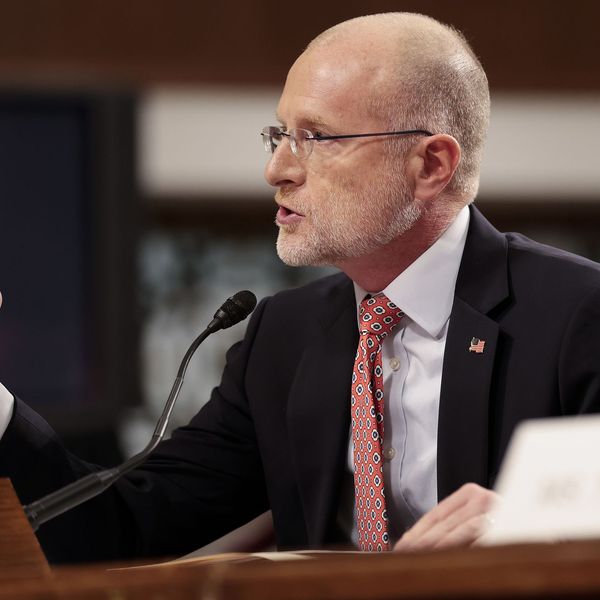Federal Communications Committee chairman Tom Wheeler indicated on Wednesday that he would support some of the strongest net neutrality reforms when the committee meets again next month--including, it seems, the reclassification of the internet as a public utility under Title II of the Federal Communications Act.
Speaking at the CES technology conference in Las Vegas, Nevada on Wednesday, Wheeler dismissed the most common industry arguments that reclassification would discourage service providers from upgrading their network systems or stifle business and innovation. ISPs and cable companies like Comcast and Verizon have strongly objected to reforms pushed by net neutrality supporters.
"[I]t became obvious that commercially reasonable could be interpreted as what is reasonable for the ISPs, not what is reasonable for consumers or innovators," Wheeler said. "And that's the wrong question and the wrong answer because the issue here is how do we make sure that consumers and innovators have open access to networks. That led us to a more robust investigation of the well established concept of just and reasonable, which is a Title II concept."
Internet watchdog Free Press president and CEO Craig Aaron praised Wheeler's aggressive remarks. "Chairman Wheeler appears to have heard the demands of the millions of Internet users who have called for real Net Neutrality protections," Aaron said. "The FCC's past decisions to put its oversight authority on ice resulted in Net Neutrality being under constant threat. Wheeler now realizes that it's best to simply follow the law Congress wrote and ignore the bogus claims of the biggest phone and cable companies and their well-financed front groups."
Still, Aaron conceded that Wheeler, a former industry lobbyist, must now act on his words. "Of course the devil will be in the details, and we await publication of the agency's final decision," Aaron said. "But it's refreshing to see the chairman firmly reject the industry's lies and scare tactics. As we've said all along, Title II is a very flexible, deregulatory framework that ensures investment and innovation while also preserving the important public interest principles of nondiscrimination, universal service, interconnection and competition."
According to reports from those in attendance at CES, Wheeler also said he had been moving to propose using Title II to reclassify the internet as a public utility even before President Barack Obama suggested doing so in November 2014. That particular reform has been touted as the strongest possible protection for net neutrality, as it would prohibit paid prioritization, blocking, and throttling.
Wheeler's comments came in an onstage discussion with Consumer Electronics Association (CEA) President Gary Shapiro. "What's interesting also is that other ISPs, smaller ISPs, like the rural carriers, competitive ISPs, have all come in and said, 'we like Title II, we hope you'll do Title II,'" Wheeler told Shapiro, according to Ars Technica.
Journalists in attendance also noted that Wheeler again distanced himself from his previous net neutrality proposals. He said Wednesday that a planned "commercial reasonableness test" that would have evaluated deals between ISPs and content providers was unrealistic.
The test, which would have determined whether deals allowing paid prioritization--the so-called "fast lanes"--for companies like Netflix violated net neutrality, would only have protected the ISPs, rather than the consumer, Wheeler told Shapiro.
Ars Technica continues:
After Wheeler's extensive comments on Title II, Shapiro summed up, saying, "what I heard you say is, without totally confirming it, is you're going down the Title II path, [and] that the wireless model is a good model, and the wireless model said forbear by law except for a couple of sections." Wheeler did not dispute that assessment.
Further, Wheeler also stated that wireless carriers, which are being regulated under Title II as well, are flourishing. Altogether, Washington Post reporter Brian Fung wrote, "it's hard to avoid believing that Wheeler has made up his mind to use the FCC's Title II powers on Internet providers."
The FCC's next meeting is set for February 26.


